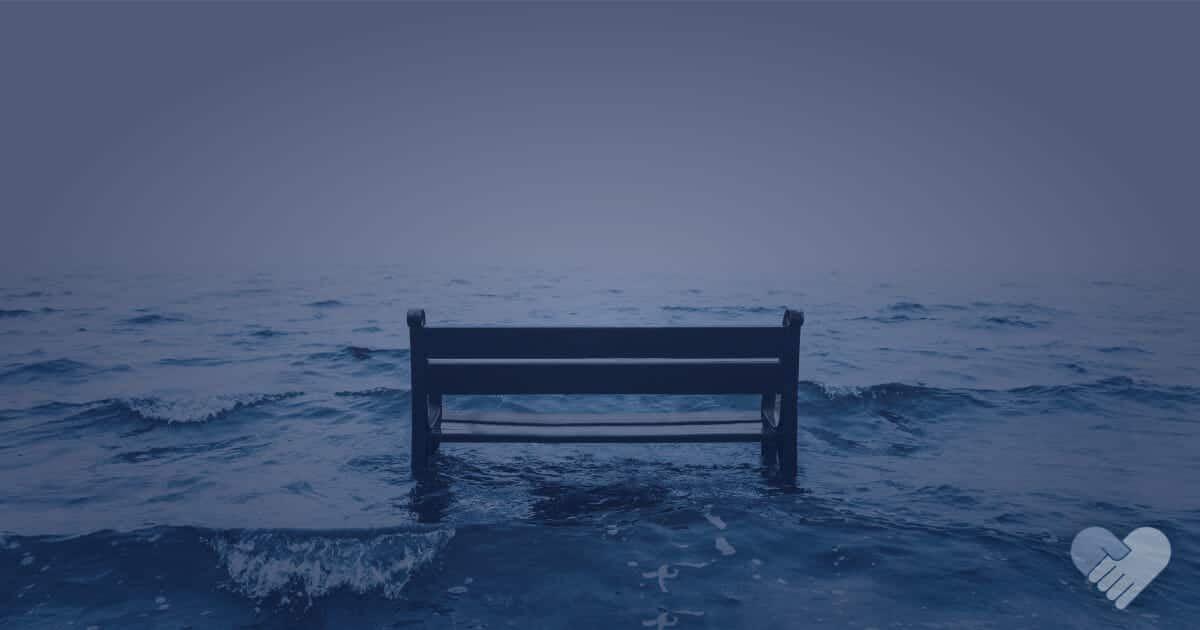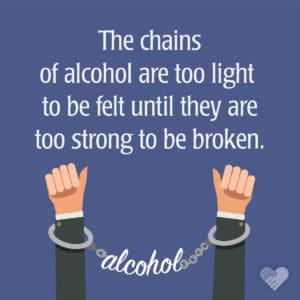Search by category, archive or keyword

We provide webinars on various topics monthly and send approximately 5,000 emails or text messages, notifying select previous callers of the upcoming webinar’s time, day, and subject. Sadly, at least 10 people will respond asking us to take them off the list because their loved one has passed. There are times when others will respond that their loved one is in the hospital, in jail, or in prison. Of these 5,000, we have never received a response to be taken off the list because their loved one or their family is doing well. Some respond harshly as if it is our fault that the situation is not improving. The families we contact are those who did not do an intervention and could have. In other words, families’ excuses not to help themselves and their loved ones were the only thing standing in the way. It wasn’t a financial, insurance, or any other issue. It was anxiety, fear of the unknown, and a family not being on the same page while acting out unhealthy family role behavior that was the barrier. Certain family members who did not want to do the intervention for selfish, maladaptive reasons overrode, overpowered, and convinced the others that this was a bad idea, it would never work, they would never agree to this, and we are salesmen. The truth is, the only one who sold anything was the person who is no longer with us, and the ones who talked the family out of helping them.
Why Families Fight The Solutions
The guilt and shame of losing a family member to addiction, alcoholism, and mental health is different than other fatal illnesses. In speaking with people who have lost their loved ones this way, they often wish they could have done more for their loved one. With other fatal illnesses, families do not think twice about doing all they can, and other family members do not talk others out of helping.
“Nobody mourns the death of another by saying they did everything they could. The mourning comes from knowing they didn’t.”
We are not here to say you did not try to help your loved one. Families often try to address the problem themselves without professional guidance. Families rarely see the need to address their behaviors and spend most of their time trying to fix their loved one. Some believe enabling is the answer, knowing it hurts the whole family. Families would seek professional help with any other fatal illness, and with addiction and mental health, they rarely do. Like other significant medical problems and diseases, there are solutions. The most crucial difference between some other fatal problems and diseases is that addiction and mental health are very treatable, death is preventable, and the solutions are much easier. If anyone with a significant disease, illness, or medical condition had to follow the solutions of someone with addiction or mental health issues to live, they would instantly do it. If your loved one had a fatal illness and the doctor came in and laid out the steps of an intervention program and said that the family needed to make changes for themselves, that would significantly help improve the condition and the outcome for their loved one; any family anywhere would take those steps.
In other words:
“If your loved one had pancreatic cancer and all that was required was doing an intervention, changing family behaviors, and your loved one going to treatment for a little while, you would immediately take that option and not think twice.”
I remember talking to a family member, and he said, “You know, if we do this with you, it better work. It has to work; he wanted a guarantee or would not move forward helping his son.” I told him you’ve got a great chance of this working, and there are no guarantees that your loved one will make it in the long term unless he stays on track with some simple suggestions. I stated that if you and your wife make the suggested changes, stop enabling, hold him accountable, and get better for yourselves, your chances and his are very high for a successful outcome. I told him he would never say these things to any other professional about another medical problem, the way he said what he said to me, and that he would not pass on trying to help unless there was a one-hundred-percent guarantee. I said that if this were any other medical problem, you would be grateful for any chance of success with such a simple solution, rather than a little chance of success with complex solutions. The difference with other fatal illnesses is that the family is not part of the problem and does not have to change their behaviors for the patient to get well. With addiction and mental health, they do.
So, in summary:
“Families behave and react differently with addiction and mental health solutions because a significant part of the solution is that they have to change too, and they do not want to or do not believe they have to.”
Families see much better results when they use a professional to do an intervention to help themselves and their loved one, not just their loved one. Yes, families do interventions with professional interventionists to get the person into treatment to address their substance use and or mental disorder. Families greatly benefit from intervention when provided education, guidance, and closure to know they did everything possible while learning to communicate effectively with their loved one and each other. Addiction and mental disorders take lives. Doing everything you can with the guidance of addiction and mental health professionals will help your family know you did all you could. If something were to happen, you would have some peace that you did everything rather than going about it ineffectively and without professionals. Addressing the problem in-house with family members who are not professionals, with little to no ability to take practical steps, isn’t going to help you get over the loss of somebody with alcoholism, drug addiction, or mental disorders.
We can tell you from talking to people who have lost loved ones to addiction and mental health that it is overwhelming and catastrophic, and most people can’t get through it. Families that have done interventions and have done everything they can and still lose a loved one are in a much better place than those who have not done everything they could to stop it. When someone passes from substance use and mental disorders, it is difficult. Our goal with every family member is to provide closure that they know they did everything they could to stop the addiction, the alcoholism, or the mental health disorder; it is our mission statement on our website.
Alcoholism is a Progressive Disease
One of the biggest misconceptions about alcoholism is that it takes a long time to take effect. Many believe that serious health concerns about alcoholism require years of drinking before a full addiction and alcoholism can occur.
Admitted alcoholics will tell you their alcoholism dates from the earliest days of their drinking; it just took years to admit their alcoholism. Some alcoholics will even admit that the first time they got drunk, they knew their drinking was going to be a problem, but denial prevented them from admitting to themselves just how bad it could get.
The Progression of Alcohol Abuse to Alcoholism
Using Alcohol to Manage Mood, Stress, or Anxiety
55%
When Alcohol Begins to Control Your Life
There is a saying that goes, “alcohol creates a need for itself,” an idea that is very familiar to alcoholics. With alcohol dependence, alcohol rules everything in one’s life and determines what one does. Daily behaviors are controlled by the need for alcohol. As such, alcohol is in control, not the alcoholic.
At this point, an alcoholic won’t engage in activities or go out with friends and family if it hampers the ability to access alcohol. The alcoholic’s whole life revolves around a schedule designed to keep an adequate level of alcohol in the bloodstream and to minimize symptoms of alcohol withdrawal. To others, it becomes obvious that alcohol is in control of the alcoholic’s life, but the alcoholic feels he or she is successful in managing the problem.

End-Stage Alcoholism
Generally fatal, end-stage alcoholism is marked by significant health problems and the inability to quit drinking, even with all the health problems being experienced. Heart and liver problems, pancreatic issues, and cognitive issues are common at this point, and alcoholics are usually given final, desperate warnings by their doctors that alcohol will kill them. A decision must be made by alcoholics: will they allow alcohol to kill them, or will they fight to survive and quit drinking?
If an individual quits drinking, there may still be hope. If an alcoholic cannot quit drinking, even at the end stage, a sad and slow death ensues.
Dying from Alcoholism is the Hardest Thing a Family Member Will Ever Have to Witness
Losing a family member to a terminal, progressive disease can rip right through the soul. Seeing a loved one struggling to stay alive while the body gives out is heart-wrenching and frightening. Many families have to watch a family member die from various terminal illnesses such as cancer, Alzheimer’s, and leukemia. These diseases are agonizing, too, but end-stage alcoholism is truly a horrendous end to the gift of life.
Families That Lose a Loved One to Alcoholism
After a loved one dies from alcoholism, families experience significant grief, and the most common things that family members say afterward are:
“If only we had acted sooner to get him help.”
“He said he had it under control; why did we believe that?”
“What more could we have done that would have saved him?”
Families often blame themselves for the death of a loved one from alcoholism, but the family and friends of alcoholics should not blame themselves. As long as families have done everything to make help accessible to the alcoholic, then they have done what they can to help turn their loved one’s life around.
All that families can do is provide their alcoholic loved ones with an opportunity to help themselves. The most important thing not to do is enable the addiction, i.e., make it easy to continue drinking as the loved ones continue edging toward end-stage alcoholism.
The Dangers of Enabling Alcoholism
Counterintuitively, families sometimes enable their loved one’s addiction out of love, believing they are helping. Enabling alcohol addiction is not helping, even though motherly and fatherly instincts would seem to indicate it.
While the idea of enabling alcoholism can be difficult for families to recognize and address, it is something that MUST be addressed. If families continue to enable their loved ones’ alcohol abuse, even when they are slowly killing themselves with their drinking, then the families are contributing to their death.
Those words may sound harsh, but they are truthful. Enabling an addiction does not benefit the welfare of the loved one. Rather, it lessens the chance that a change in lifestyle can occur. In cases of alcohol addiction, no change in lifestyle can easily lead to death.
How Family First Intervention Can Help a Loved One in Danger of Dying from Alcohol
When we work with families on alcohol interventions, we look at the big question: “Why hasn’t this person received treatment?” Why hasn’t this person been able to recover? What are the roadblocks impeding sobriety, and why does the prospect of drinking to death seem to be this person’s only choice?”
When dealing with the risk of alcoholism progressing into the end stage, we aim to remove roadblocks to recovery, obstacles such as enabling behaviors, guilt, and shame, and underlying conditions that have prevented recovery in the past. Serious alcoholism must be dealt with as an emergency situation, and our certified interventionist professionals can help your family deal with this emergency before it is too late.
Call Now to Speak with an Interventionist: 1 (888) 291-8514
An intervention is not about how to control the substance user; it is about how to let go of believing you can.
“The most formidable challenge we professionals face is families not accepting our suggested solutions. Rather, they only hear us challenging theirs. Interventions are as much about families letting go of old ideas as they are about being open to new ones. Before a family can do something about the problem, they must stop allowing the problem to persist. These same thoughts and principles apply to your loved one in need of help.”
Mike Loverde, MHS, CIP



